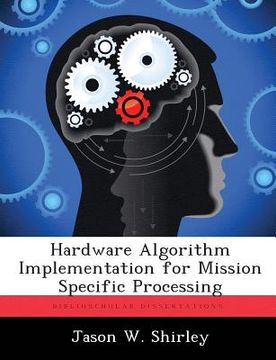Share
Hardware Algorithm Implementation for Mission Specific Processing (in English)
Jason W. Shirley
(Author)
·
Biblioscholar
· Paperback
Hardware Algorithm Implementation for Mission Specific Processing (in English) - Shirley, Jason W.
$ 48.80
$ 57.95
You save: $ 9.15
Choose the list to add your product or create one New List
✓ Product added successfully to the Wishlist.
Go to My WishlistsIt will be shipped from our warehouse between
Monday, July 08 and
Tuesday, July 09.
You will receive it anywhere in United States between 1 and 3 business days after shipment.
Synopsis "Hardware Algorithm Implementation for Mission Specific Processing (in English)"
There is a need to expedite the process of designing military hardware to stay ahead of the adversary. The core of this project was to build reusable, synthesizeable libraries to make this a possibility. In order to build these libraries, Matlab commands and functions, such as Conv2, Round, Floor, Pinv, etc., had to be converted into reusable VHDL modules. These modules make up reusable libraries for the Mission Specific Process (MSP) which will support AFRL/RY. The MSP allows the VLSI design process to be completed in a mere matter of days or months using an FPGA or ASIC design, as opposed to the current way of developing a system which can take 1-2 years to complete. By having the libraries built, the components can be implemented in an FPGA or ASIC design over and over again. The libraries make it possible to make upgrades to weapons systems to meet the ever-changing needs the War Fighter faces. MSP makes it possible to develop various algorithms, including algorithms implemented in Matlab. The MSP libraries were built and tested using TSMC 250-nm technology library from the Taiwan Semiconductor Manufacturing Company. They were also synthesized for an FPGA. The modules were all synthesized using the CAD tools from Cadence and Mentor Graphics. Power, area, and delay results for each module were presented.
- 0% (0)
- 0% (0)
- 0% (0)
- 0% (0)
- 0% (0)
All books in our catalog are Original.
The book is written in English.
The binding of this edition is Paperback.
✓ Producto agregado correctamente al carro, Ir a Pagar.

